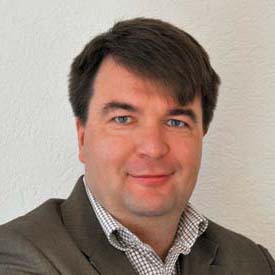
Gleb Larionov, the managing director of XSAT Fze, a telecoms solutions provider, gives us an insight into the extraordinary world of satellite phones.
What is the remotest area your phone has travelled?
We have clients who are travelling to the Arctic with XSAT’s Iridium phones.
What is the strangest request you have received for communications-on-the-move?
One of the US-based clients called XSAT USA and asked if we can sell him Iridium but he wanted Iridium, the chemical element. The funniest request was for an Iridium Open Port system with a big antenna (1.2 metres in diameter). Open port is installed on vessels to provide voice and data communication.
The most difficult aspect to negotiate is customer care. If you a satellite phone customer, buying a phone is just a beginning and, in fact, the easiest part
A lady called the office saying she will be on an ice-breaker going to the Arctic and she wanted OpenPort (OP). We thought she was calling on behalf of a shipping company, but she said she needs OP for her personal usage just to keep in touch during her trip. And when we asked if she had permission from the captain to install OP, she said that she was just planning to take OP along in her handbag! It must have been a huge, 1.2-metre handbag!
What is a common misconception about satellite phones?
The common misconception is that satellite phones are expensive, bulky and difficult to operate. People still believe it costs a fortune to use satellite phones, although the cost of the phone is equal to latest GSM Smartphones and usage costs are around US$ one per minute. Sometimes, it is cheaper to call using a satellite phone rather than a GSM in the roaming mode. And the latest phones , for instance the Thuraya XT Dual, are compact and elegant and very easy to operate.
In terms of help requests received from the field, what was the toughest situation you have faced?
The toughest situations are always related to mountain climbers. For them, communication and location coordinates are matters of life and death. We once received a request to get latest GPS coordinates of one of the numbers because the climber was missing. We provided the location, but unfortunately the missing climber was found dead.
Have your phones gone into conflict zones?
Like the Thuraya chairman, Mohammad Omran, once said: “Read the breaking news, and you will know where our customers are”. More and more companies are using Satcom as a back-up. For instance, during the UAE’s 40th anniversary celebrations, Emaar bought 10 Thuraya phones as a back-up.
What is the most economical package you are currently selling?
The Inmarsat GSPS phone is the most economical package we are selling these days for voice communication.
What is your one advice to buyers and users of satellite mobile phones?
Know your budget, know what you will require in terms of the services, tell us where you will be travelling and relax, we will do the rest. And yes, do not bargain!
Who are the most difficult customers for satellite phones and who are the easiest to deal with?
The most difficult customers are those who don’t know what they need and why they need a satellite phone. They keep changing their mind and we spend a lot of our and time and their’s, with very little result. The easiest customers are existing customers.
When dealing with the MSS provider, what are the easiest and most difficult aspects?
The most difficult aspect to negotiate is customer care. If you a satellite phone customer, buying a phone is just a beginning and, in fact, the easiest part. Be careful of MSS providers with extremely low prices – they might be not there after 12 months when you need them. Go with a reasonably priced, reputed company that has been in this business for some time, at least for five years.














Add Comment